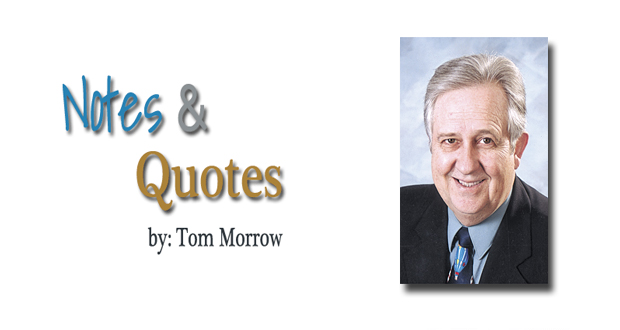Was He, or Wasn’t He a Russian Spy?

The Strange Case of Alger Hiss
The man who put Richard M. Nixon in the political spotlight…
By Tom Morrow
In 1948, Alger Hiss was a U.S. State Department official who was accused of spying for the Soviet Union. Hiss had been a key official who was involved in the establishment of the United Nations.
The Hiss story broke in the media on Aug. 3, 1948, when an admitted former U.S. Communist Party member, Whittaker Chambers, testified before the House Un-American Activities Committee (HUAC). Chambers said Hiss had secretly been a communist while in federal service.
Hiss, born Nov. 11, 1904, categorically denied the charge when brought before the HUAC, but Chambers produced evidence indicating he and Hiss had been involved in espionage. A federal grand jury indicted Hiss on two counts of perjury. After a mistrial due to a hung jury, Hiss was tried a second time, and, in January 1950, he was found guilty and received two concurrent five-year sentences, of which he eventually served three and a half years.
One HUAC member, Rep. Richard M. Nixon, (R-Calif), took advantage of the committee’s post World War II crusade to hunt down communists. Over the next five years the committee’s actions brought Nixon’s name into the public arena, helping vault him into the U.S. Senate and on to becoming vice president in 1952, and eventually into the White House.
Chambers said Hiss had been a communist since 1937, He repeated his allegation to the FBI. In 1945. In September 1945, a Ukrainian cipher clerk stationed at the Soviet Embassy in Ottawa defected offering authorities evidence about a Soviet espionage network actively working to acquire nuclear weapons information. He said there was an official of the U.S. Secretary of State as being a Soviet agent.
FBI Director J. Edgar Hoover assumed the Soviet clerk was referring to Hiss who worked in the State Department and was an adviser to Sec. of State Dean Acheson. The FBI concluded “Alger” Hiss was the likely match. Hoover put a wiretap on Hiss’s home phone and had him and his wife investigated and tailed for the next two years.
In response to Chambers’ accusations, Hiss protested his innocence and insisted on appearing before HUAC to clear himself. Testifying on Aug. 5, 1948, Hiss denied having ever been a communist or having personally met Chambers. Under fire from President Truman and the press, HUAC was reluctant to proceed with its investigation against such a highly placed official. However, Congressman Nixon, who later described Hiss’s demeanor that day as, “insolent,” “condescending,” and “insulting in the extreme,” wanted to press on. With some reluctance, the Committee voted to make Nixon chairman of a sub-committee that would seek to determine who was lying – Chambers or Hiss.
Admitted being a one-time communist, Hiss claimed to have quit the Party in 1937, but he was indicted on two counts of perjury before the HUAC. Hiss’s character witnesses at his first trial, which ended in a hung jury included such notables as future (1952 and 1956) Democratic presidential candidate Adlai Stevenson, along with Supreme Court Justices Felix Frankfurter, and Stanley Reed. The second trial found him guilty. Hiss received five years on each of the two counts to run concurrently.
At a Secretary of State Dean Acheson reacted emotionally, affirming, “I do not intend to turn my back on Alger Hiss.” The verdict was upheld by the United States Court of Appeals and the U.S. Supreme Court denied a request for appeal.
Two weeks after the Hiss verdict, U.S. Sen. Joseph McCarthy, (Rep, WI) launched his famous crusade against communism during a speech in Wheeling, W. Virginia.
Although he had been sentenced to five years, he served only three years and eight months in Federal prison. He was released on Nov. 27, 1954. He fought his perjury conviction, maintaining his innocence until his death from emphysema on Nov. 15, 1996, four days after his 92nd birthday. Those of Hiss’ friends and family still living continue to insist on his innocence.
After the dissolution of the Soviet Union in 1991, Hiss petitioned Russia to release of any files on the Hiss case. In late 1992, Russian archivists reported no evidence Hiss ever engaged in espionage for the Soviet Union nor that he was ever a member of the Communist Party.
Ten years later, in 2003, a Russian intelligence official further reported Hiss did not have a relationship with the Soviets and was not implicated in spying, but in May 2009, a U.S. historian reported while researching the Soviet intelligence service he found two military files referred to Alger Hiss as “our agent.”
So, was he, or wasn’t he?




